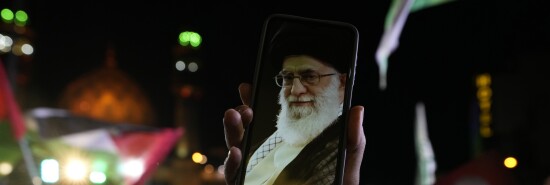
Israel war: Press Hamas’s state sponsors to end the war
Jonathan Schanzer
Video Embed
The Israeli response to the Oct. 7 Hamas slaughter of 1,400 people, not to mention the kidnapping of more than 200 of its citizens, was utterly predictable. The Israel Defense Forces are now in the Gaza Strip, working to eliminate the Iran-backed terrorist organization.
Hamas knew this would be the outcome. It attacked nonetheless. Fears of a humanitarian crisis in Gaza are growing. There are broad calls for a ceasefire across social media, television airwaves, and protests spanning the globe.
BIDEN AND GOP RIVALS TRY TO SHIFT FOCUS TO TRUMP’S AGE AND GAFFES IN 2024 RACE
Most of the outrage is directed at Israel. This is probably because Israel is the more powerful party. That outrage is misdirected. Israel has allowed itself to be restrained by world powers during previous bouts with Hamas: 2008, 2012, 2014, and 2021. That restraint enabled the terrorist group to arm, train, and plan for the Oct. 7 attack that now has the Middle East on the brink of a wider war.
The international community, or at least the West (given the U.N.’s track record), should try a new approach: demand that Hamas surrender. The key to that is the group’s patrons.
The most important pressure point is the Islamic Republic of Iran. Since the early 1990s, the world’s most prolific state sponsor of terrorism has armed, funded, and trained the Palestinian terrorist group. The support from Tehran is roughly $200 million per year, not including the rockets, light arms, and other weaponry. The regime also trained an estimated 500 fighters to carry out the Oct. 7 assault.
Admittedly, Iran is not likely to bend. The regime is behind much of the violence unfolding today. But with the U.S. military deployed to the region, coupled with (long overdue) financial and political pressure on the regime, Tehran still might be sufficiently threatened to stand down.
After Iran, attention must turn to Qatar and Turkey. Both countries host Hamas leadership on their soil. Hamas’s safe havens there have enabled the group to raise funds, organize, and even plan attacks. Qatar gives an average of $150 million annually to the group. Reports suggest it could be more, including funds for military activities. Turkey’s largesse is more opaque. But Ankara’s political and diplomatic support is crystal clear, especially now that the government is hosting rallies in support of the U.S.-sanctioned terrorist group.
The next important jurisdiction is Lebanon. The Hamas leadership roams free there. They coordinate openly with the Iran-backed Hezbollah and Islamic Jihad. They maintain a nerve center for terrorist operations, all under the auspices of Iran’s Islamic Revolutionary Guard Corps.
From there, international pressure can be applied to countries such as Malaysia, Kuwait, Algeria, and South Africa. Malaysia hosts Hamas operatives who learn advanced technical skills and even engage in military training. The Israeli Mossad has targeted some of them in recent years, but others remain. Kuwait is a jurisdiction of illicit finance (not just for Hamas), and the political backing is constant. Finally, Algeria and South Africa are among the more prominent states that express unabashed support for Hamas activities.
World leaders, legislators, nongovernmental organizations, and activists must convince these states to demand that Hamas lay down its weapons and surrender. If the group fights to the very end, Gaza will lie in ruins.
The strategic objective of Israel, the stronger party in this battle, is to destroy Hamas. After the Oct. 7 slaughter, Israel’s citizens will never be able to feel safe so long as the terrorist group remains. And the United States has endorsed the Israeli ground operation now underway. Short of a much wider war that includes Hezbollah, Iran, or other powerful actors, Hamas is sure to lose. Even then, the 2.2 million people of Gaza will be subjected to needless suffering because of Hamas’s actions. Indeed, they already are.
Hamas’s patrons may not want to hear it, but they have sponsored failed war after failed war with Israel. They have repeatedly enabled destructive wars in Gaza and never had to pay a price. Today, an even more destructive war is looming. With Israel fully mobilized, they must push their clients to lay down their arms. It must be unconditional. And it must happen now.
Responsible governments, legislators, and NGOs need to mobilize quickly. Hamas’s patrons must feel the international pressure. And should they refuse to mount the necessary effort to convince Hamas to surrender, they should be held to account when the guns fall silent.
CLICK HERE FOR MORE FROM THE WASHINGTON EXAMINER
Jonathan Schanzer, a former terrorism finance analyst at the U.S. Department of the Treasury, is senior vice president for research at Foundation for Defense of Democracies. Follow him on X @JSchanzer.
